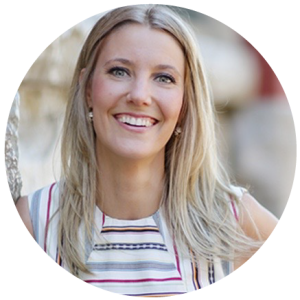[vc_row][vc_column][vc_column_text][printfriendly]
By Kaela Scott
Q: How do I allow my supports into my recovery process?
A: One of the most common issues when someone is struggling with an eating disorder is often self-enforced isolation. One of the most important pieces of recovery is letting others in so we can heal and move towards a healthy recovered life. So how do we bridge the gap between eating disorder driven isolation and recovery focused support systems?
Having a healthy, consistent and encouraging support team is one of the greatest factors in recovery. We need people to help guide us and to remind us of our goals when it feels like the eating disorder voice is screaming at you and trying to make you stay loyal to its demands. The first step in allowing people into your recovery process is getting clear on who you feel will be able to support in a healthy, helpful manner. Sometimes, even those closest to us, who may love us most, may not be the best people to include in the vulnerable journey towards recovery. Getting clear on who you want to be involved in your journey means you know exactly who to turn to in your moments of need (and when the eating disorder is trying to keep you isolated).
Once you know who you want to share your journey with, I think one of the healthiest things you can do is ask for some time to check in with them about some things that have been coming up for you. By doing this you create space to actually have a conversation about what you have been struggling with and the person on the receiving end will be more present. Talking about it out of the blue can sometimes catch people off guard and result in their answers not always being as sensitive as we need. Sharing your experiences takes a lot of courage and you want to set yourself, and your support, up to be as successful as possible.
When we begin to share our story, I think it is important to reflect on what pieces you want to share first and what boundaries you need in place. For example, you may want to just let them know that you have been struggling to begin with and set the boundary that you don’t want to be overwhelmed with questions right off the bat? Or perhaps you want to share your story some place safe (your apartment, your favourite path by the water etc) and at a particular time of the day. Maybe you want them to know just how vulnerable you are feeling and that they need to be really gentle in how they connect with you during that time. Perhaps you want to talk to each person separately, or maybe all at once.
You also want to brace yourself for the fact that your support system may have a reaction to your story. For many it may be really sad to know you are in pain, while others may marvel in your courage to share your feelings and the struggle you are facing with your disorder. Your supports are human and while the process needs to be predominantly focused on you, it’s important that you don’t deny them their own feelings.
Finally, it is critical that you learn to ask for what you need from them going forward. Maybe it is asking to have a meal with someone a few times a week so you can ensure you are meeting your recovery goals. Or maybe it is by giving yourself permission to take up space when you feel you are overwhelmed with all the emotions and anxiety that comes up. By asking for what you need your supports know how to show up. If you don’t, not only will you feel really disappointed if they don’t meet your needs but it is likely that your eating disorder will continue to put barriers between you and your recovery.
[/vc_column_text][/vc_column][/vc_row][vc_row][vc_column][vc_column_text]
[/vc_column_text][/vc_column][/vc_row][vc_row][vc_column][vc_column_text]
[dt_divider style=”thin” /]
 Kaela Scott is a Registered Clinical Counsellor who specializes in Eating Disorders. She runs her own private practice and works with the Looking Glass Foundation in both their summer camp and their Hand In Hand Program. She has been passionate about working with eating disorders since freeing herself from her own struggle and realizing what it is like to be happy and well. When she isn’t working, you can find Kaela either cozying up with a cup of tea and her friends or up in the mountains going for a hike.
Kaela Scott is a Registered Clinical Counsellor who specializes in Eating Disorders. She runs her own private practice and works with the Looking Glass Foundation in both their summer camp and their Hand In Hand Program. She has been passionate about working with eating disorders since freeing herself from her own struggle and realizing what it is like to be happy and well. When she isn’t working, you can find Kaela either cozying up with a cup of tea and her friends or up in the mountains going for a hike.
[/vc_column_text][/vc_column][/vc_row]